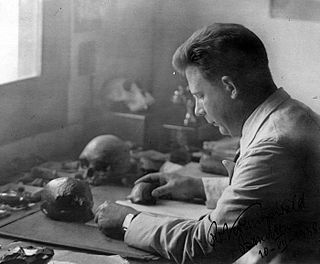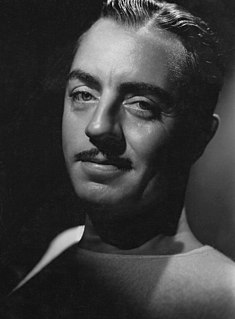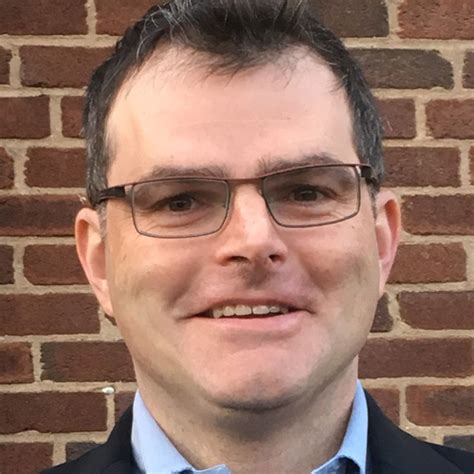A Quote by Thomas Huxley
I know no study which is so unutterably saddening as that of the evolution of humanity, as it is set forth in the annals of history. Out of the darkness of prehistoric ages man emerges with the marks of his lowly origin strong upon him. He is a brute, only more intelligent than the other brutes, a blind prey to impulses, which as often as not led him to destruction; a victim to endless illusions, which make his mental existence a terror and a burden, and fill his physical life with barren toil and battle.
Quote Topics
Ages
Barren
Battle
Blind
Brute
Brutes
Burden
Darkness
Destruction
Endless
Evolution
Existence
Fill
Forth
Him
His
History
Humanity
Illusions
Impulses
Intelligent
Know
Led
Life
Lowly
Make
Man
Marks
Mental
More
Often
Only
Origin
Other
Out
Physical
Prehistoric
Prey
Saddening
Set
Strong
Study
Terror
Than
Toil
Victim
Which
Related Quotes
A good soldier is a blind, heartless, soulless, murderous machine. He is not a man. His is not a brute, for brutes kill only in self defense. All that is human in him, all that is divine in him, all that constitutes the man has been sworn away when he took the enlistment roll. His mind, his conscience, aye, his very soul, are in the keeping of his officer. No man can fall lower than a soldier-it is a depth beneath which we cannot go.
Man with all his noble qualities, with sympathy which feels for the most debased, with benevolence which extends not only to other men but to the humblest living creature, with his god-like intellect which has penetrated into the movements and constitution of the solar system- with all these exalted powers- Man still bears in his bodily frame the indelible stamp of his lowly origin.
The pitch to which he was aroused was tremendous. All the fighting blood of his breed was up in him and surging through him. This was living., though he did not know it. He was realizing his own meaning in the world; he was doing that for which he was made.... He was justifying his existence, than which life can do no greater; for life achieves its summit when it does to the uttermost that which it was equipped to do.
Man did not address his inquiries to the earth on which he stood until a remarkably late stage in the development of his desire for knowledge. And the answers he received to the questions, "Where do I come from?", "What is man?", although they made him poorer by a few illusions, gave him in compensation a knowledge of his past that is vaster than he could ever have dreamed. For it emerged that the history of life was his history too.
Man is more than his environment. It is from the innate quality of the Spirit in him, his inner storehouse, that he draws those ideas, his intuitions, which unify his perceptions of the external world instantaneously with a value which is qualitative and not quantitative, and which he embodies in the works of his culture - those achievements which belong not only to one particular time but to all times, and mark the path of his upward progress.
I have never gone into a picture without first studying my characterization from all angles. I make a study of the fellow's life and try to learn everything about him, including the conditions under which he came into this world, his parentage, his environment, his social status, and the things in which he is interested. Then I attempt to get his mental attitude as much as possible.
The soldier, above all other men, is required to perform the highest act of religious offering-sacrifice. In battle and in the face of danger and death he discloses those divine attributes which his amke gave when he created in his own image. No physical courage and no brute instincts can take the place of the divine annunciation and spiritual gift which will alone sustain him.
Every individual is continually exerting himself to find out the most advantageous employment for whatever capital he can command. It is his own advantage, indeed, and not that of the society which he has in view. But the study of his own advantage naturally, or rather necessarily, leads him to prefer that employment which is most advantageous to society... He intends only his own gain, and he is in this, as in many other cases, led by an invisible hand to promote an end which was not part of his intention
It is an irony of medical history that even as Freud's later work would make him the progenitor of modern psychodynamic psychotherapy, which is generally premised on the idea that mental illness arises from unconscious psychological conflicts, his papers on cocaine make him one of the fathers of biological psychiatry, which is governed by the notion that mental distress is partly caused by a physical or chemical malfunction that can be treated with drugs.
Reason cannot desire for man any condition other than that in which not only every individual enjoys the most absolute, unbounded freedom to develop himself out of himself, in true individuality, but in which physical nature, as well, need receive no other shaping by human hands than that which is given to her voluntarily by each individual, according to the measure of his wants and his inclinations, restricted only by the limits of his energy and his rights.
Step back in time; look closely at the child in the very arms of his mother; see the external world reflected for the first time in the yet unclear mirror of his understanding; study the first examples which strike his eyes; listen to the first words which arouse within him the slumbering power of thought; watch the first struggles which he has to undergo; only then will you comprehend the source of his prejudices, the habits, and the passions which are to rule his life. The entire man, so to speak, comes fully formed in the wrappings of his cradle.
Man is a spiritual being, a soul, and at some period of his life everyone is possessed with an irresistible desire to know his relationship to the Infinite. . . . There is something within him which urges him to rise above himself, to control his environment, to master the body and all things physical and live in a higher and more beautiful world.
There is a time in every man's education when he arrives at the conviction that envy is ignorance; that imitation is suicide; that he must take himself for better, for worse, as his portion; that though the wide universe is full of good, no kernel of nourishing corn can come to him but through his toil bestowed on that plot of ground which is given to him to till. The power which resides in him is new in nature, and none but he knows what that is which he can do, nor does he know until he has tried.


































